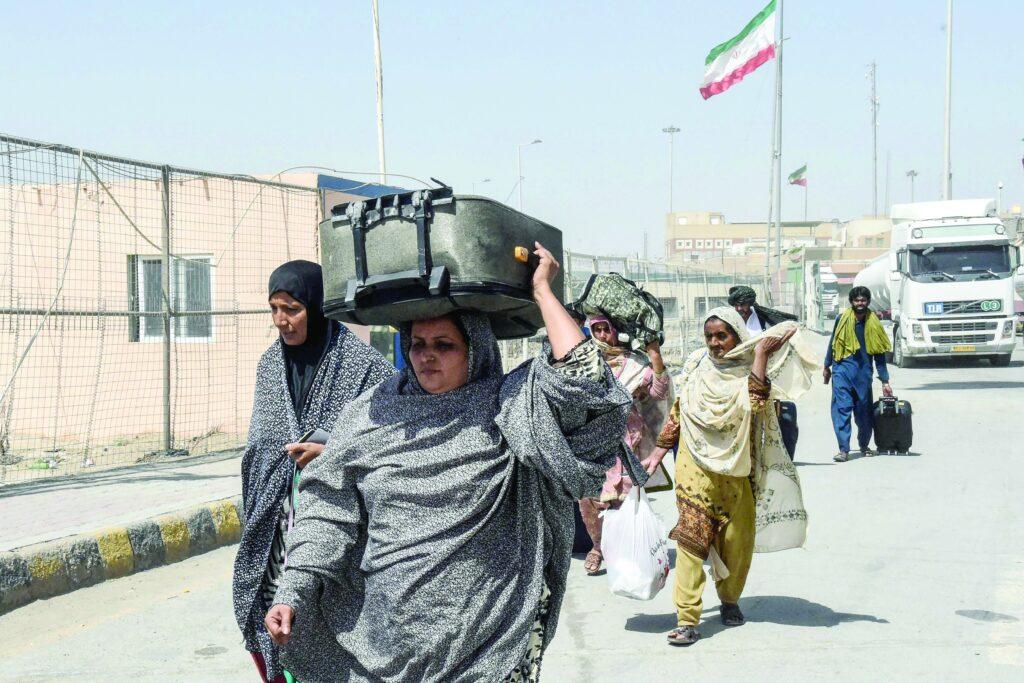TAFTAN:
Mohammad Hassan anxiously returned to Pakistan of the neighbor Iran this week after witnessing drones, missiles and explosions crossing Tehran’s sky during what he called long, “horrible nights.”
The student of the 35 -year -old Tehran University is one of the approximately 3,000 Pakistani who, according to the Ministry of Foreign Affairs, have returned home since Israel launched their air war against its enemy for a long time last week.
Governments around the world are struggling to evacuate their nationals trapped in the hiking of a fast spiral such as the commercial missiles of Israel and Iran and the blows of drones.
“I was in the center of the city where most of the strikes took place and even one of the student bedrooms was attacked and, luckily, nobody was dead, but the students were injured,” said Hassan.
There are more than 500 Pakistani students alone at their university, he said, all of them on their way “back home.”
“Those days and nights were very horrible … listening to sirens, the groan, the danger of being hit by missiles. While one looked out the window at night, you could see drones, missiles with fire tails,” he told AFP.
Mohammad Khalil, a 41 -year -old oil engineer, left Tehran three days ago, the capital of the Islamic Republic looked like a ghost town when residents protected inside and the families fled.
“In the last two days, I saw people who moved from the city in different vehicles with necessary products,” Khalil said.
Abdul Ghani Khan sells medical equipment in Peshawar and travels to Iran regularly for supplies.
He had been in Tehran for a week when the first Israeli missiles fell on Friday.
Khan had to make the trip home by road because the airspace is now closed. Pakistan has also closed his border crossings with Iran to all, except Pakistanis who want to return home.
“We saw drones, red anti -aircraft lights and I saw a fire in the building,” Khan said.
Mohammad Asif, a Lahore lawyer in eastern Pakistan, learned of air attacks while he was on a pilgrimage in Qom. Initially he was not afraid and continued his pilgrimage to Mashhad.
That was until Israeli attacks arrived at Mashhad airport, almost 1,000 kilometers (620 miles) from the Pakistani border.
Samreen Ali was also in Mashhad but, as Asif, interrupted her trip and returned with her husband and her 15 -year -old son. I was praying in a mosque in Mashhad when Israel hit the city.
Ali said he had visited Iran nine times before on pilgrimages and never imagined witnessing the war there. “I was offering prayer when I heard two explosions,” he told AFP.
Then he realized that he was not receiving messages on his phone and assumed that “communication was being restricted … due to war.”
Syed Saqib, 46, was Qom and had to travel 500 kilometers (310 miles) by bus southeast to Yazd. “We had to take alternative routes, spend a whole night waiting at a bus terminal,” Saqib said.
Then they addressed bus to Zahedan, a city near the border with the province of Baluchistan of Pakistan. A relieved Saqib recalled to make the border crossing in Taftan, surrounded by families carrying heavy luggage.




